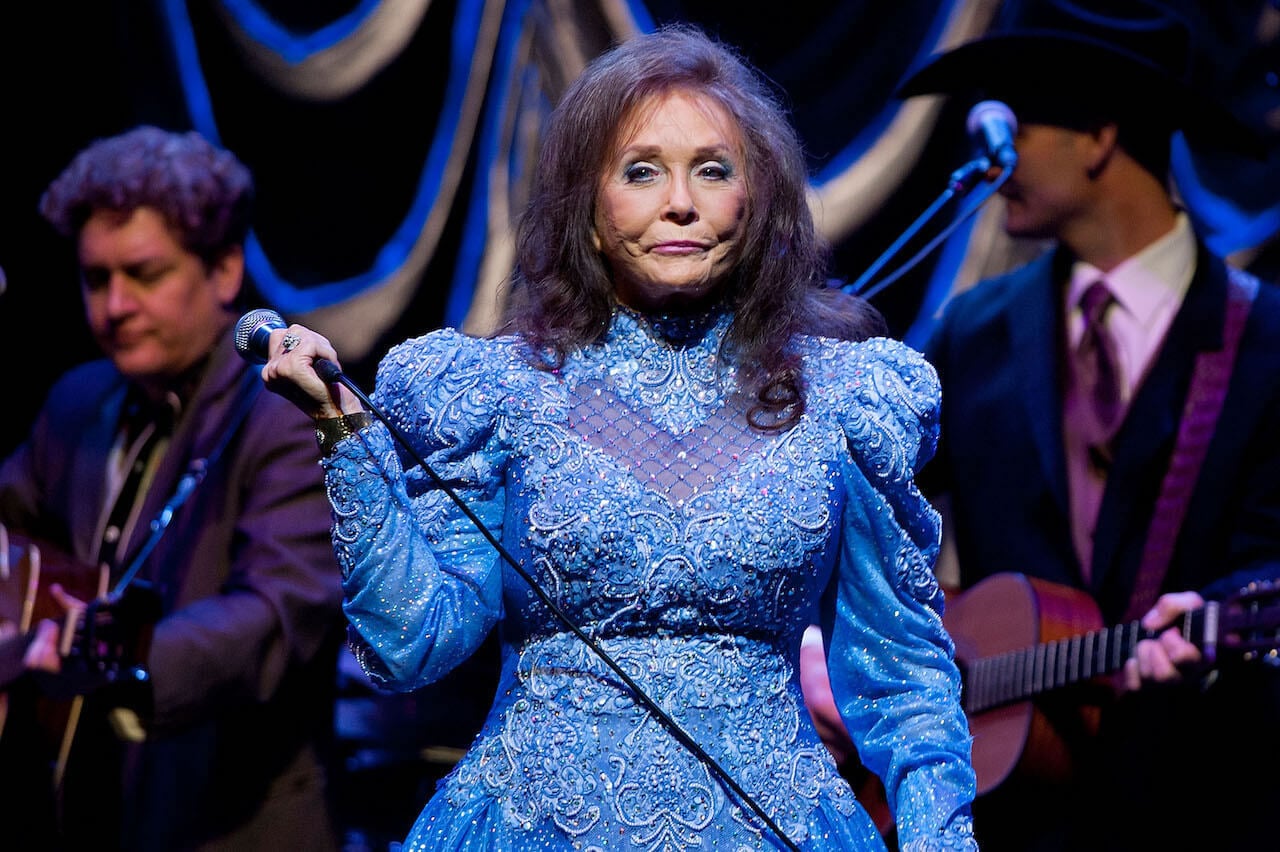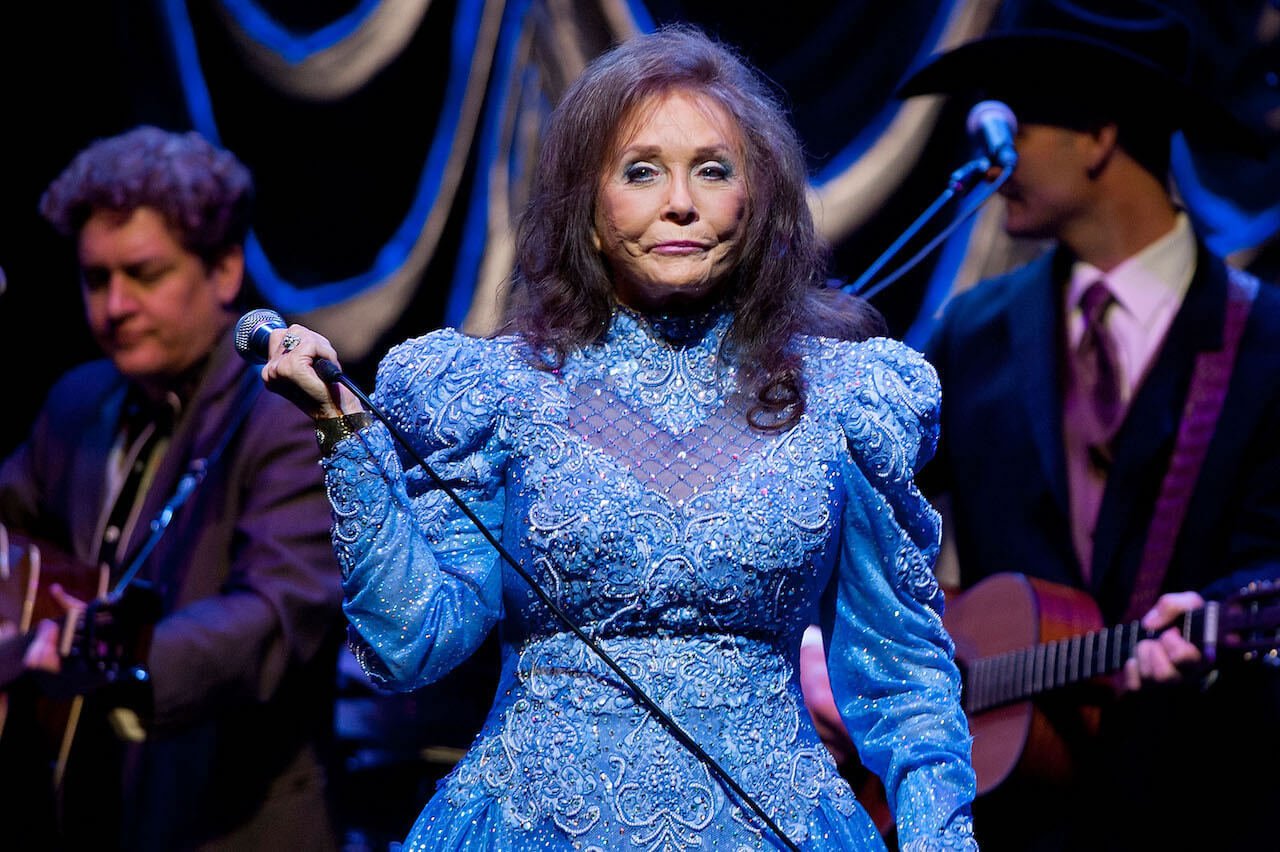
3 of Loretta Lynn’s Best Songs That Were Banned for Controversy
Country legend Loretta Lynn was a prolific songwriter, undeniably. But not everyone liked to hear what she had to say in her honest, woman-centered songs — especially in the ’60s. Country radio stations outright banned a relatively small number of her tunes for being too controversial, not that it bothered her too much.
Here’s a look at why Lynn believed that happened and why it didn’t worry her regarding their chart performance. Plus, our picks for three of her most honest banned songs.

Why country stations banned Loretta Lynn’s songs, in her words
In Lynn’s 90-year life, she wrote hundreds of songs. Many of those she recorded for release, and 16 went to number one.
In a 1987 interview with the San Diego Union, she noted country stations banned eight. But it was a good sign. “As soon as I heard one of my songs got banned,” she said, “I knew it would go to the top of the charts!”
It might not have hurt her bottom line, but she had a theory for why it happened. “I was saying things girls weren’t supposed to say, but I didn’t realize they weren’t supposed to … because I got married at 13 and had kids. I hadn’t been out in the world and hadn’t realized I’d upset people,” she explained.
Lynn’s once-banned songs include “The Pill,” which didn’t sit well with some listeners since it was pro-birth control. So, besides that one, let’s highlight three of her best for the story they tell about the plights of women.
Loretta Lynn’s banned song about a woman losing her virginity: ‘Wings Upon Your Horns’
The first of Lynn’s banned tunes we picked is 1969’s “Wings Upon Your Horns,” about the impact of a “smooth talkin'” man who convinces a woman to give up her virginity. Then, he doesn’t keep his promises to make her his wife. Tale as old as time.
However, Lynn’s interpretation used religious imagery to describe the betrayal. This outraged some audiences and led to a ban (per Taste of Country). Still, the song was a hit for the icon, whose life and autobiography inspired the film Coal Miner’s Daughter.
“Wings Upon Your Horns” reached no. 11 on the Billboard hot country chart in 1970. Lynn’s lyrics include, “You hung my wings upon your horns / And turned my halo into thorns / And turned me into a woman I can’t stand / You’re the first to ever make me / Fall in love and then not take me.”
Loretta Lynn’s banned song about marriage: ‘Don’t Come A-Drinkin’ (With Lovin’ on Your Mind)’
At this point, we all know Lynn’s long marriage to her husband, Oliver Lynn, was full of ups and downs. She didn’t lie about the fact that he drank, they’d fight, and he might have wandered. Notably, while on his deathbed, he denied ever cheating on her.
“Don’t Come A-Drinkin’ (With Lovin’ on Your Mind)” was her take on being married to a man who would go out on the town with friends and expect intimacy from his wife when he came home. The message was clear: Loretta Lynn was not the one for that.
Some listeners were offended by Lynn putting words to that often unspoken power dynamic between spouses back then. She was just being honest, but her influence encouraged other women to evaluate how much they liked it when their husbands came home drunk and amorous.
The song was banned, per Taste of Country. But it still went to no. 1 on the Billboard hot country chart in 1967. In it, Lynn sang, “No don’t come home a drinkin’ / With lovin’ on your mind / Just stay out there on the town / And see what you can find / ‘Cause if you want that kind of love / Well ya don’t need none of mine.”
Loretta Lynn’s banned song about divorce: ‘Rated X’
Finally, “Rated X” is a song about the ups and downs of divorce. Lynn never divorced but noted how, for women, “Divorce is the key to being loose and free / So you’re gonna be talked about.”
She described how being divorced changes how some people see a woman. However, she also warned, “But I think it’s wrong to judge every picture / If a cheap camera makes a mistake.”
According to Taste of Country, some stations banned the song. But it reached no. 1 on the Billboard hot country chart in 1973. Other lyrics are, “And when your best friend’s husband says to you / You’ve sure started lookin’ good / You should’ve known he would / And he would if he could / And he will if you’re rated X.”


